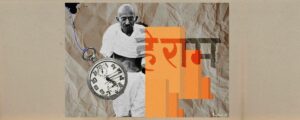Who would have ever imagined that the venerated Kashmiri Brahmins – who, we are told, once bested the conquering Advait crusader Adi Shankaracharya with the force of Trika Shaivism – would one instructive day be protesting their heart-rending plight collectively on the streets of Jammu.
All that under a dispensation commanded by the supposedly Hindu-loving Narendra Modi-Amit Shah combine; for, after all, it is they whom the Lieutenant Governor of the humiliated Union Territory represents, not the people of Jammu and Kashmir.
To be told in ‘take it or leave it’ tones that there are no free lunches for them, that they must return to the Valley despite a declared threat to their lives in order to earn their salaries must feel like a crushing breach of faith from a quarter least expected to use that tone to them.
However justly they may argue the precedence of life over livelihood, citing Article 21 of the constitution of India, the right-wing ideological project in that orphaned part of the republic remains foremost to the ruling Hindutva dispensation.
If the Pandits feel that the betrayal by a kindred majoritarian regime is the unkindest cut, the regime, in turn, will not excuse them for sabotaging the two beloved agendas of the Hindutva centre – one, to be able to announce to the world how Islamic terrorism has been defeated in the territory, decisively, making the return of Pandits possible where previous governments failed to achieve that objective; and, two, to make that supposed transformation a leading wedge of demographic transformation.
How, alas, may these objectives be realised if recalcitrant Pandits, aborigines of the land, choose, unpatriotically, to prize their lives above the political telos of the right-wing?
Some useful inferences
Is it not instructive that Kashmiri Pandits should not have suffered the fate they now suffer when elected governments remained in power in the erstwhile state, and that it is an ostensibly “strong” rule, undistracted by democratic obligations, that has brought them to this nadir?
Clearly, an authoritarian government which has for nearly four years now jettisoned the principle of representation – the foremost basic feature of the constitution of India – and propagated to be aligned with the Pandits on terms of identity, has brought more misery to them than governments that were led by mainstream Muslim leaders of Kashmir’s political life.
And in that consequence, may it not be argued with some justice that the Pandits’ misread of the complex historical and psychological predicament of Kashmiri Muslims has been an unfortunate contributor?
Is it not the case that the illicit generalisation we often make ahistorically about the “nature” of individuals, communities and cultures express much more our own unanalysed preconceptions than any immutable truths about them?
An early taste of this was of course handed down to the Pandits when both a Union government supported by the Bharatiya Janata Party and a hard-nosed Governor sent to the state to fix uppity militants thought nothing of leaving them to their existential fate in 1990, from whence their more lasting travail began.
Subsequently, if anyone gave them any thought it was a secular government led by Manmohan Singh who made efforts, however meager, to rehabilitate Pandits as part of a package of retrievals.
And, now the educative irony: that those who went to the valley in consonance with that package should have had to quit when no electoral riff raff is there to spoil the grand dominance of Modi and Shah, riding the back of an unprecedented military presence, who seem explicitly to worry more about subjugating or coopting political forces in the state than answering to the needs of Pandits and other beleaguered Kashmiris – Muslims, Dogras, Sikhs, Gujjars, Bakerwals, students, diverse segments of employees, traders faced with the prospect of being dispossessed of their land-lease holdings, farmers and horticulturists confronting land expropriation measures so as to release land for non-native entrepreneurs and so on.
Protesting Pandits may also now be acquiring some recognition of how fraught with danger to life was any intent on the part of common Kashmiri Muslims in 1990 to come out in support of the Pandits, given that, even in that moment, more Muslims were still being killed.
A few years ago this writer had pleaded that the best course for all Kashmiris, Pandits included, might be to subordinate their religious identities to their ethnic and linguistic oneness, and the long cultural history which they together make up.
I venture the thought that now in their severest disillusionment – that with the touted claims of communal oneness between them and the ruling dispensation – their unprecedented anguish and boldness of collective public protest, they had best trigger a reclamation of their oneness with the common Kashmiri Muslim mass.
It is in that connect that their more lasting security resides, and a more realistic prospect of a return home as well.
This will require a reconsideration of their distrust of mainstream political formations that have stood more truly for composite culture than have Kashmiris’ current rulers, recalling times when Pandits did, after all, grace upper echelons of both academe and bureaucracy.
Which must not mean that those heights can be returned to them to the relegation or subordination of, now, two generations of Muslim Kashmiris who have more than proved their mettle in all professions that were once Pandit prerogatives.
Tail piece
Might it not be desirable for a sequel to be made to The Kashmir Files that takes into cinematic account the trials now being experienced by Pandits under Hindutva rule, incorporating truthfully the full expression they have been giving to their terminal disillusionment with those who, in the resonant phrase of Sushant Bhan, have used them as “cannon fodder” for their devious political purposes?
(Badri Raina has taught at Delhi University. Courtesy: The Wire.)




